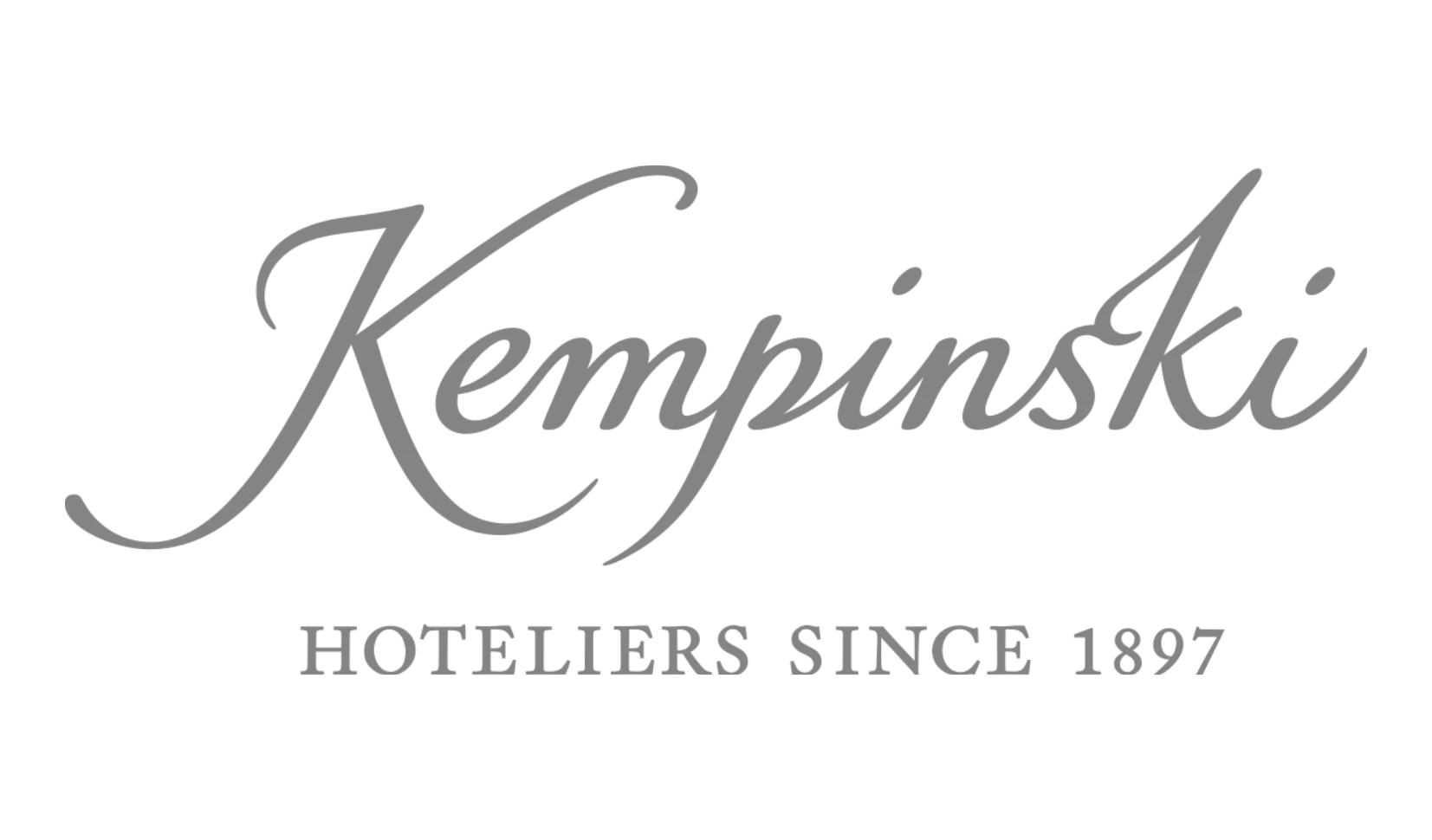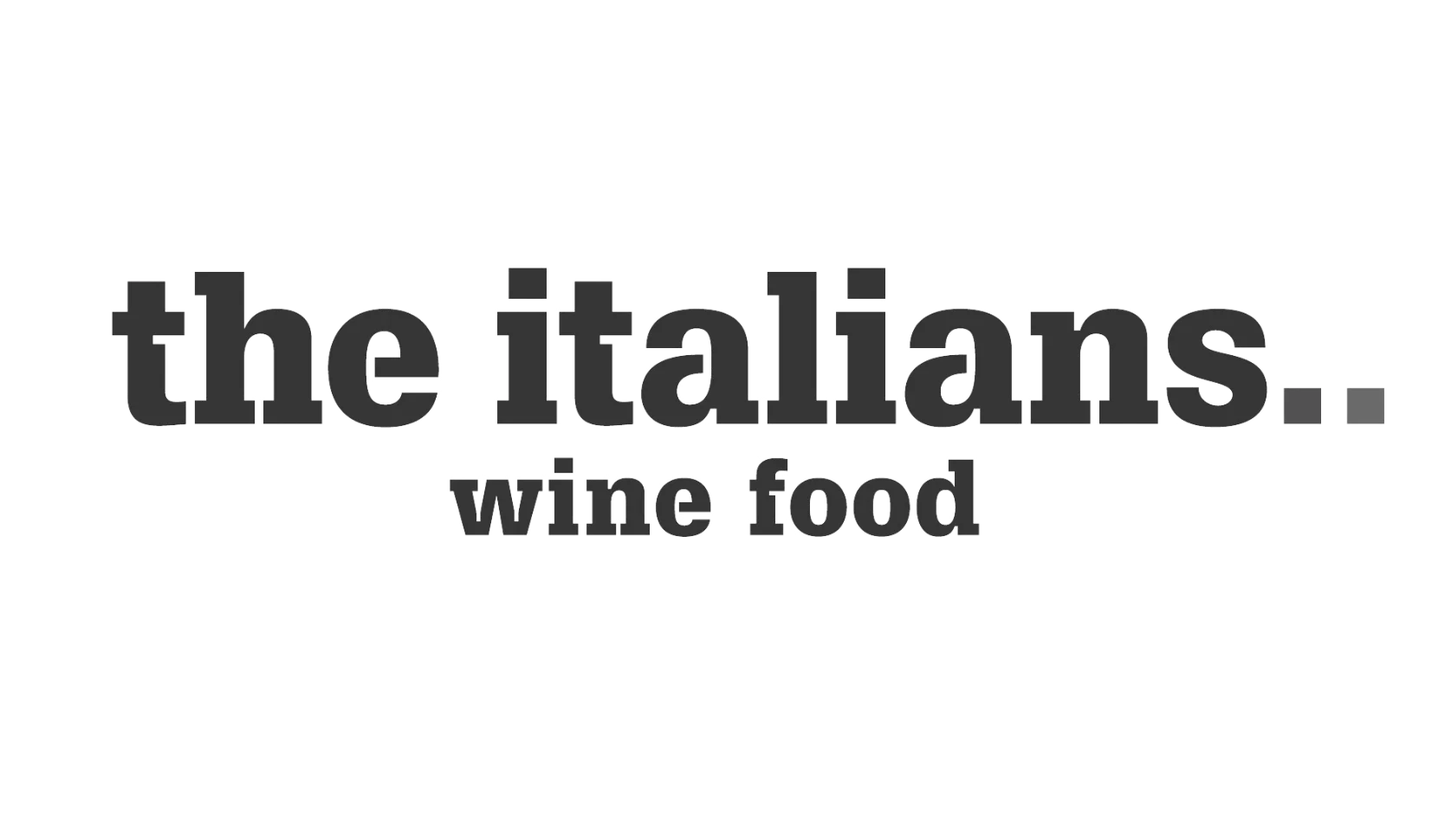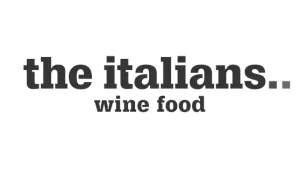Welcome to the world of culinary creativity! In this post, we’ll look into the methods that top chefs use to perfect the art of food plating. Plating is not just about arranging food on a plate; it’s a creative process that enhances the dining experience. So let’s explore the intriguing world of food plating and learn how to make dishes that are visually stunning.
1. The importance of presentation
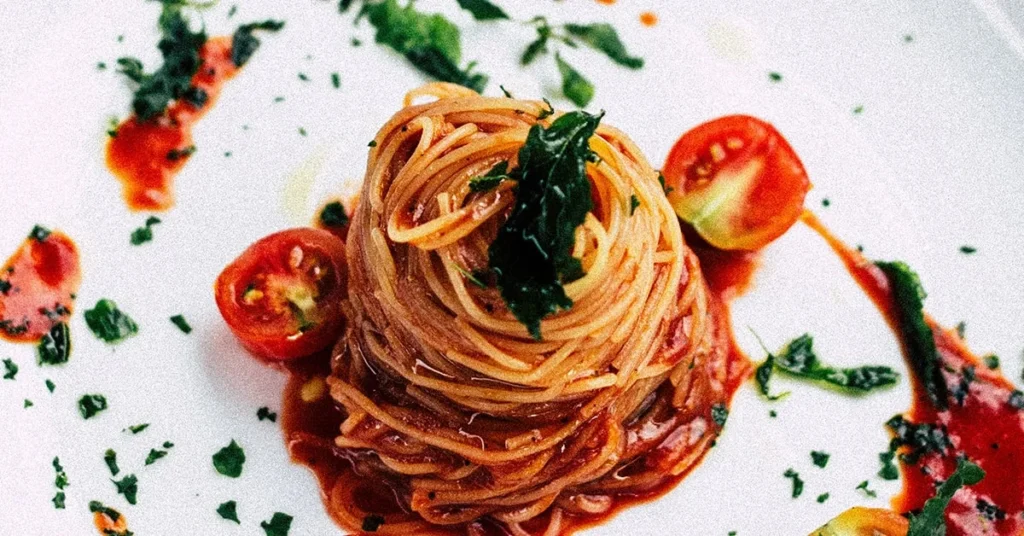
The way that food is presented is crucial in luring customers and improving their whole eating experience. Here’s why:
Visual appeal: A beautifully presented dish attracts attention and immediately whets the appetite. It creates anticipation and makes the meal more enjoyable.
Perception of quality: A dish that has been expertly plated conveys a sense of artistry, attention to detail and a high level of culinary expertise, all of which reflects positively on the restaurant.
Differentiation: Make your restaurant stand out from the crowd with distinctive and artistic food presentation. This will leave a lasting impression on customers and will promote repeat business.
Social media potential: Yes diners who take pictures of their food can be quite annoying. Yet visually appealing dishes are quite likely to be shared on social media platforms, giving your restaurant free advertising and exposure.
(Read more about digital marketing for your restaurant)
2. Balance and composition
Creating a visually appealing plate involves careful consideration of balance and composition. The following are some essential methods for achieving harmony in food presentation:
The rule of thirds: Imagine cutting the plate into two horizontal and two vertical halves, dividing it into nine equal pieces. To provide aesthetic appeal and balance, arrange the dish’s primary components along these lines or at their intersections.
Colour contrast: Use a variety of bold, contrasting colours. Include colourful fruits, veggies, or edible flowers to add splashes of colour.
Layering and height: To add depth and dimension to the plate, vary the component heights and layers. Use garnishes or stack foods to enhance verticality and visual appeal, or stack foods.
3. Canvas on a plate
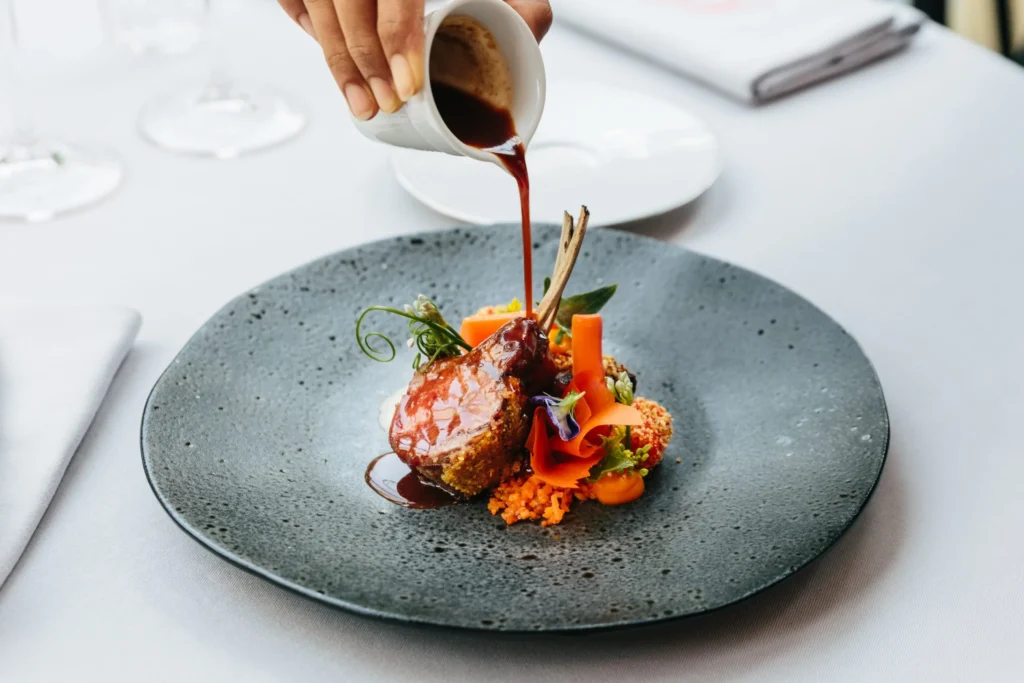
Consider the plate as a blank canvas on which you can paint with food. Use borders and negative space to boost your dish’s visual impact:
Negative space: Leave portions of the plate bare or sparsely decorated allowing the focal point of the meal to shine. Negative space lends a sense of beauty and simplicity while helping to highlight the key components.
Borders: Use sauces, purees, or tidily arranged garnishes to define the borders of the plate. Borders provide structure and frame the dish, boosting its overall aesthetic appeal.
4. Accents and utensil placements
Utensils should be arranged thoughtfully, and smart accents can improve the way your food is presented. Think about the following methods:
Utensil position: Depending on the dish’s design and the intended level of formality, place silverware or serving utensils next to or on top of the plate. As an alternative, display utensils in a creative and unconventional manner to add a touch of whimsy.
Garnishes and accents: Use complementary elements to garnish the dish, such as herbs, microgreens, edible flowers, or citrus zest. These finishing touches improve the aesthetic appeal by adding colour, texture, and flavour.
Watch “
Plating Reimagined: One Entree. Three Ways” to see ICE Director of Culinary Development James Briscione as he reimagines roast duck, from classic French technique to new Nordic and linear styles of plating.Get plating!
Food plating is an art form that demands imagination, meticulousness, and a profound knowledge of flavour and aesthetics. You may turn everyday foods into culinary masterpieces that leave an impression on your guests by understanding the techniques employed by chefs.
Always put aesthetics first. Experiment with different plating techniques and embrace your originality. So go ahead, let your creative side loose and produce stunning dishes that will please the palate as well as the sight. Have fun plating!
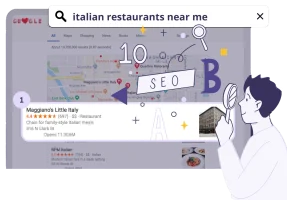
Unlock the tips that will help you stand out from the crowd and get more bookings!

Learn how to save time, reduce stress and fill your restaurant while you sleep!

Stephanie Bugeja
Tableo’s design-savvy Marketing Executive, Stephanie blends UX expertise with creative flair. Lover of clean layouts and cornetti in Rome.

Stephanie Bugeja
Tableo’s design-savvy Marketing Executive, Stephanie blends UX expertise with creative flair. Lover of clean layouts and cornetti in Rome.
